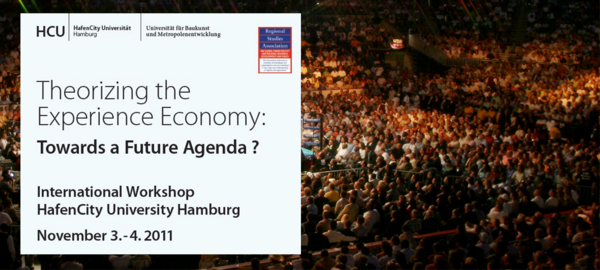
What determines the economic value of a good or a service? How is the price of a piece of art established? Why is an iPhone that expensive? How much would you pay for a pleasant atmosphere in a restaurant? These are the sort of questions that are addressed by a growing body of literature on the experience economy. This notion seeks to capture the tendency that the economic value of goods or services rests less and less with their functional and practical attributes. Rather, economic value is created through the specific and memorable social context (‘the stage’) in which consumption takes place.
This workshop, on the one hand, seeks to assess how the perspective of the experience economy advances our general understanding of the social processes of market valuation. What is the value-added of the experience economy perspective compared to related lines of reasoning such as those advanced in the cultural economy literature? On the other hand, the workshop will explore the impacts of the experience economy on urban and regional development by discussing examples as diverse as the urban staging of the night-time economy, the branding of organic local food, the importance of place for the value of perfumes or the creation of authenticity in the Swiss watch industry.
<link fileadmin documents professoren_und_mitarbeiter gernot_grabher experience_economy_hcu_announcement.pdf download file>Announcement | <link fileadmin documents professoren_und_mitarbeiter gernot_grabher programm_experience_economy.pdf download file>Program | <link fileadmin documents professoren_und_mitarbeiter gernot_grabher experience_economy_hcu_abstract-booklet.pdf>Abstract booklet |Presentations and papers | Photo Gallery | Report | Venue | back



